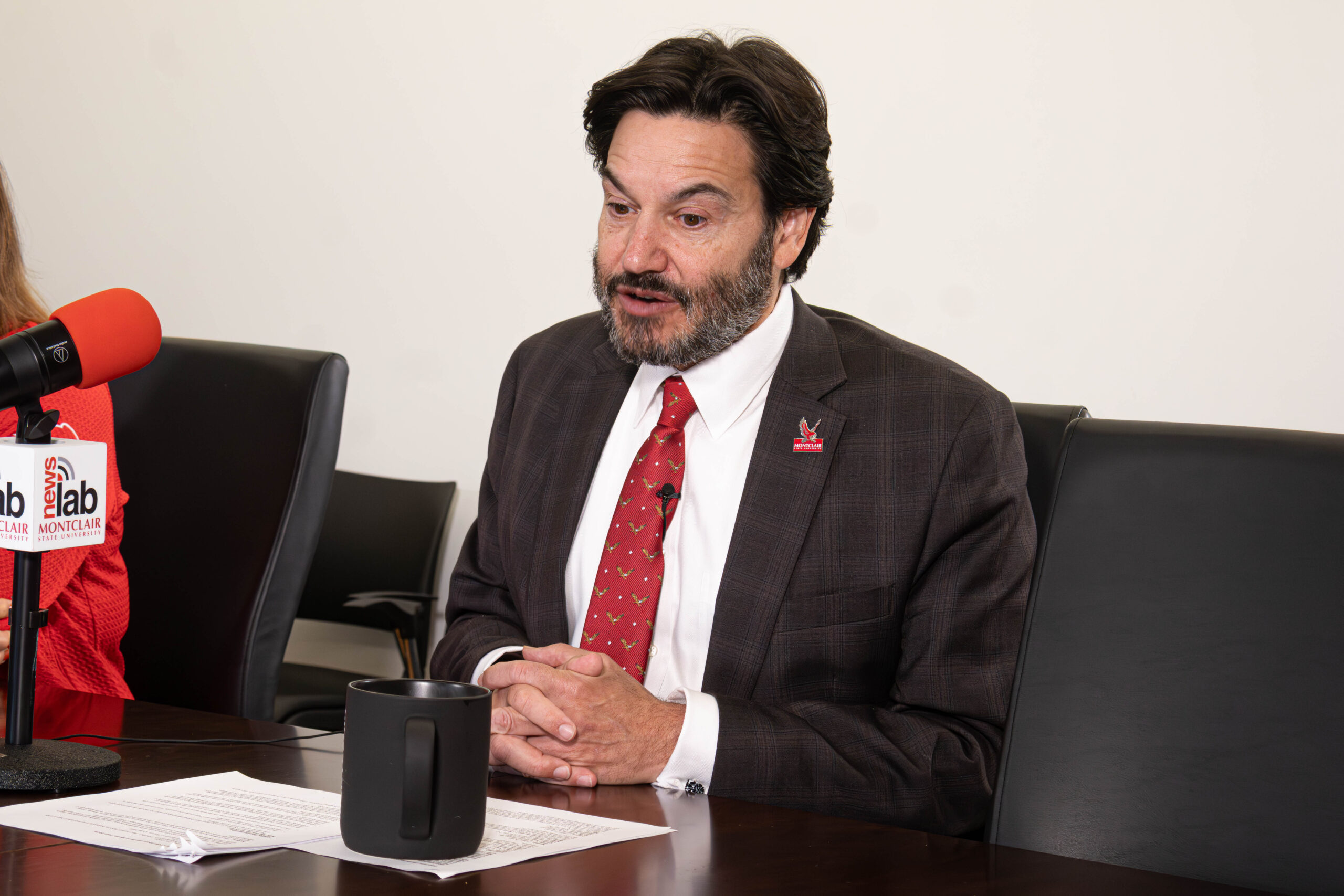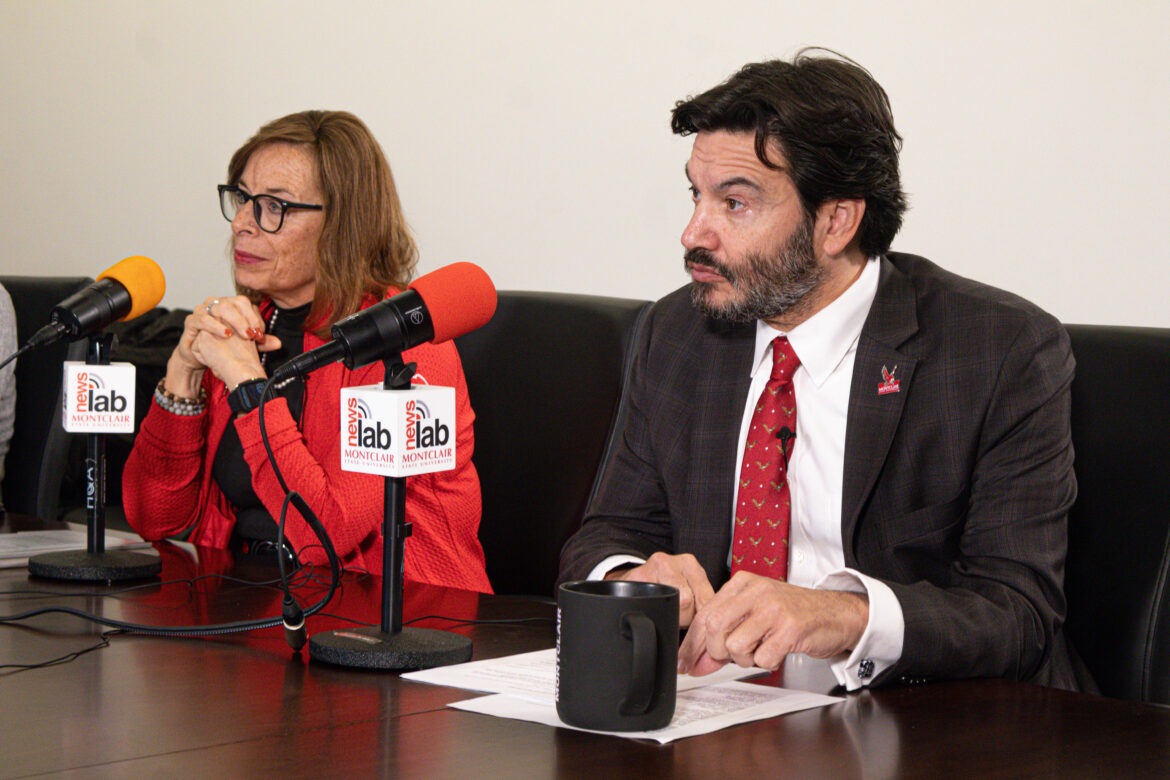At the semesterly media availability on Nov. 21, Montclair State University President Jonathan Koppell addressed student and faculty concerns about the future of the College of Humanities and Social Sciences (CHSS).
Over the past few weeks, the Montclair State community expressed disapproval and started a petition opposing the university’s restructuring plan for CHSS, which would eliminate departments, department chairs and reorganize the college into four schools.
Students and faculty’s biggest concerns were the transparency of the restructuring process and the possibility of majors and programs being cut. President Koppell emphasized the importance of grounding the conversation in facts and truth, clarifying that these concerns come out of misconceptions.
“[The restructuring plan] does not include elimination of majors. It does not include elimination of any certificates, programs [or] the firing of any faculty,” Koppell said. “Putting out those rumors and spreading them does nothing to advance the cause of good, serious discourse.”

Jonathan Koppell speaks to student media at his media availability on Nov. 21st. David Bien-Aime | The Montclarion
President Koppell clarified that the goal of the restructuring is to strengthen these programs, rather than to get rid of them.
“What we are trying to accomplish is to infuse some energy and interest in the humanities and social sciences,” Koppell said. “These are disciplines that are at the core of the university.”
Koppell highlighted that the process involves faculty and department chairs, with no final decisions made yet.
Koppell also noted that the restructuring is specific to the College of Humanities and Social Sciences, adding that each part of the university should be evaluated individually.
Koppell explained that the concept of clustering disciplines into schools aims to address departmental issues and increase efficiency. Koppell explained the importance of disciplinary integrity and the potential for more interdisciplinary majors, allowing faculty to collaborate across fields.
“What we’re hoping would come out of this is more multidisciplinary majors that draw upon different fields that could be really interesting, that would have the opportunity for faculty to collaborate,” Koppell explained. “In my experience, some of the most interesting faculty collaboration at universities happens when students are interested in things that span boundaries and bring faculty together.”
Concerns about the cost and impact on students were also addressed, with assurances that student success remains the top priority. Koppell shared that there is no current plan to assign a cost to the restructuring.
The focus is on creating a more efficient and effective structure to increase faculty time devoted to teaching and reducing administrative burdens. This is meant to emphasize the importance of balancing efficiency with maintaining quality and student success.
President Koppell discussed the impact of the petition and the importance of student voice in the restructuring process.
“Student voice always has an impact on everything that we do,” Koppell said. “Hearing what our students are concerned about and hearing what issues they want us to take under consideration as we move forward, is essential.”
Koppell highlighted the ongoing process and the involvement of faculty and chairs in designing the internal structure, noting that while faculty are carefully weighing student input, the petition has contributed to misunderstandings and the importance of clear communication.
“To the extent, the petition captures some of that,” Koppell said. “I think some of it is based on misinformation, but it doesn’t matter. It captures their passion and their ideas that absolutely is part of the is part of the process.”
Koppell added how the humanities are essential in helping students understand society and humanity as technology continues to reshape society, emphasizing how it is fundamental that these disciplines remain.
“In a time when technology and other forces are changing the world around us,” Koppell said, “the need to access fundamental bodies of knowledge that help us understand our humanity, how [we’re] organized as human beings, [how] we connect with each other, and the way we generate empathy for one another, those things have never been more fundamental.”
Koppell sent out an email to student body on the morning of Dec. 1 — the same day as the CHSS restructuring student-led protest — assuring that “no majors in the college are being eliminated or renamed for current or future students.”



